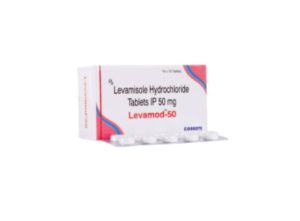
Clarithromycin Overview
Clarithromycin is a macrolide antibiotic that inhibits bacterial protein synthesis by binding to the 50S ribosomal subunit. It has bacteriostatic properties but may also be bactericidal at higher concentrations against certain pathogens. Clarithromycin has a broader spectrum of activity compared to erythromycin and is known for its improved bioavailability and fewer gastrointestinal side effects.
Brand Names and Formulations
Clarithromycin is marketed under various brand names, including:
- Biaxin
- Clacid
- Klacid
- Claripen
Common formulations and strengths:
- 250 mg tablets
- 500 mg tablets
- Extended-release (ER) tablets: 500 mg
- Oral suspension: 125 mg/5 mL or 250 mg/5 mL
Uses/Indications
Clarithromycin is used to treat a wide range of bacterial infections, including:
- Respiratory Tract Infections:
- Community-acquired pneumonia (CAP).
- Bronchitis.
- Sinusitis and pharyngitis.
- Exacerbations of chronic obstructive pulmonary disease (COPD).
- Skin and Soft Tissue Infections:
- Impetigo, cellulitis, and erysipelas.
- Helicobacter pylori Eradication:
- Used in combination with other agents (such as amoxicillin and a proton pump inhibitor) for treating H. pylori-induced peptic ulcers.
- Mycobacterial Infections:
- Treatment of Mycobacterium avium complex (MAC) in patients with HIV/AIDS.
- Otitis Media:
- In pediatric patients.
- Tonsillitis and Pharyngitis:
- Caused by Streptococcus pyogenes in patients allergic to penicillin.
Dosage
- Adults:
- Standard Dose: 250 mg twice daily for 7-14 days.
- Severe Infections: 500 mg twice daily.
- Extended-Release Tablets: 500 mg once daily for 7-14 days.
- Helicobacter pylori Eradication:
- 500 mg twice daily, in combination with amoxicillin and a proton pump inhibitor, for 7-14 days.
- Children:
- Oral Suspension: 7.5 mg/kg twice daily (max 500 mg per dose).
Side Effects
Common side effects include:
- Gastrointestinal Effects:
- Nausea, vomiting, diarrhea, abdominal pain, and taste disturbances (often metallic).
- Liver Toxicity:
- Elevated liver enzymes and, in rare cases, cholestatic hepatitis.
- Cardiac Effects:
- QT prolongation and increased risk of arrhythmias, including torsades de pointes.
- Headache and dizziness.
- Allergic Reactions:
- Rash, pruritus, and, in severe cases, anaphylaxis.
- Superinfection:
- Prolonged use can lead to overgrowth of non-susceptible organisms, including fungal infections.
- Hearing Loss:
- Reversible hearing loss has been reported, especially at higher doses.
Contraindications
Clarithromycin is contraindicated in:
- Hypersensitivity:
- Allergy to clarithromycin, erythromycin, or other macrolides.
- Concomitant Use of Certain Medications:
- Drugs that prolong the QT interval (e.g., amiodarone, sotalol).
- Ergot alkaloids, due to the risk of severe ergot toxicity.
- Statins (simvastatin and lovastatin) due to the increased risk of rhabdomyolysis.
- Severe Hepatic Impairment:
- Combined with renal impairment.
- History of QT Prolongation:
- Or ventricular arrhythmias.
- Myasthenia Gravis:
- May worsen the symptoms of this neuromuscular disorder.
Drug Interactions
Clarithromycin is a strong inhibitor of the CYP3A4 enzyme, which means it can interact with various drugs:
- Warfarin: Increased anticoagulant effects, increasing the risk of bleeding.
- Benzodiazepines (e.g., midazolam, triazolam): Prolonged sedation and respiratory depression.
- Theophylline: Increased risk of toxicity due to higher blood levels.
- Calcium Channel Blockers (e.g., verapamil, diltiazem): Risk of hypotension, bradycardia, or shock.
- Statins (e.g., simvastatin, lovastatin): Increased risk of myopathy or rhabdomyolysis.
- Rifampin: Reduces the effectiveness of clarithromycin.
- Digoxin: Can cause digoxin toxicity, requiring close monitoring of levels.
Special Considerations
- QT Prolongation: Monitor patients with a history of heart disease or those taking QT-prolonging drugs. Avoid in patients with a history of QT prolongation or arrhythmias.
- Liver Function: Regular monitoring is needed, especially in those with pre-existing liver disease.
- Renal Impairment: Dose adjustment is required in patients with severe renal impairment (creatinine clearance <30 mL/min).
- Pregnancy and Lactation:
- Clarithromycin is a Category C drug in pregnancy. It should only be used if the benefits outweigh the risks.
- Caution should be exercised when used during breastfeeding.
- H. pylori Treatment: Resistance can develop, so it is usually used in combination with other antibiotics.
Conclusion
Clarithromycin is a well-tolerated macrolide antibiotic with a broad spectrum of action, often used for respiratory, skin, and soft tissue infections, as well as in H. pylori eradication. It has fewer gastrointestinal side effects compared to erythromycin but shares some of the same concerns regarding drug interactions and QT prolongation. Its broad use, particularly for respiratory infections, makes it a key antibiotic, but careful consideration must be given to its contraindications and interactions with other medications.







